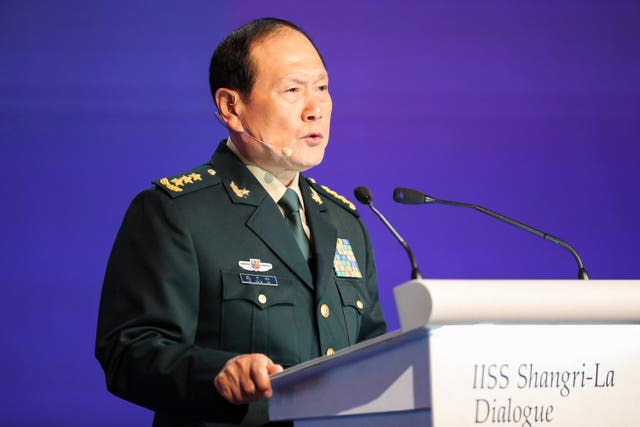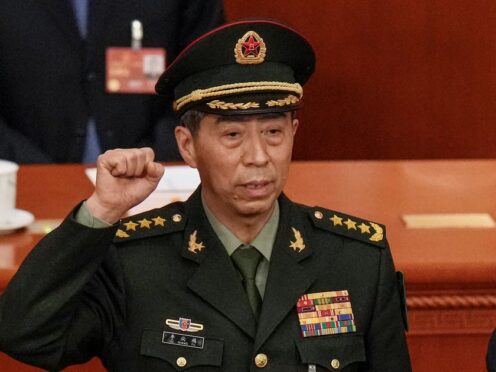China has expelled two former defence ministers from the ruling Communist Party over accusations of corruption that are likely to lead to sentences of life in prison.
The defence ministry on Thursday said Li Shangfu had abused his authority to enrich himself by taking bribes in exchange for granting favours in violation of military and party discipline. Mr Li’s predecessor, Wei Fenghe, was also accused on similar charges.
Such charges have been levelled in the past against many military leaders under the rule of president and party leader Xi Jinping, who also heads the armed forces as chairman of the Central Military Commission and has made a crackdown on corruption a hallmark of his rule since taking power more than a decade ago.
Mr Li is being investigated for corruption and bribery, the official Xinhua news agency reported on Thursday. He was removed from office in October 2023 after disappearing from public view for almost two months.

Mr Wei was placed under investigation in September and was suspected of “seriously violating political and organisational discipline by helping others gain improper benefits in personnel arrangements,” Xinhua reported.
He was found to have accepted a “huge amount of money and valuables in return, constituting the suspected crime of taking bribes,” Xinhua said, adding that he had “lost his faith and loyalty and contaminated the political environment of the military, bringing enormous damage to the Party’s cause, the development of national defence and the armed forces, as well as the image of senior officials”.
Both face prosecution under the justice system run by the People’s Liberation Army, the military wing of the Communist Party.
Insiders have alleged a widespread purge of officers suspected of conspiring with outside forces or simply being insufficiently loyal to Mr Xi. High-ranking officers occupy an elevated position in Chinese politics and can command extensive privileges.
In its statement, the ministry gave no details of the allegations against Mr Li, other than saying that his alleged crimes were “exceptionally pernicious” and that they posed “an enormous danger”.
Mr Li spent most of his career as a specialist in the missile and procurement branches, and was under travel and financial sanctions from the US over the purchase of Russian military hardware at the time he dropped from view last September.
That roughly coincided with the sudden disappearance of then-foreign minister Qin Gang and several leading officers in the rocket corps amid unproven allegations of misconduct.
Mr Li was replaced in December by Admiral Dong Jun.
